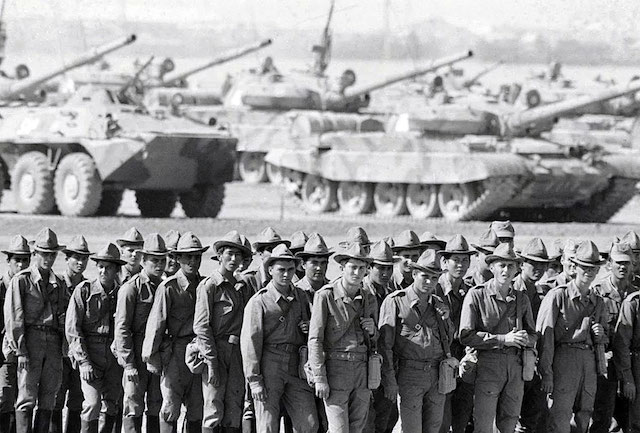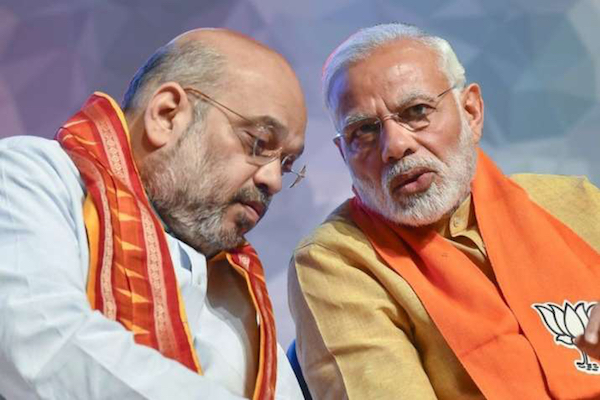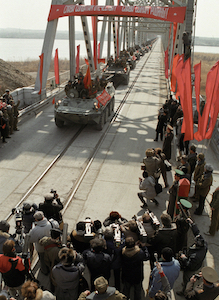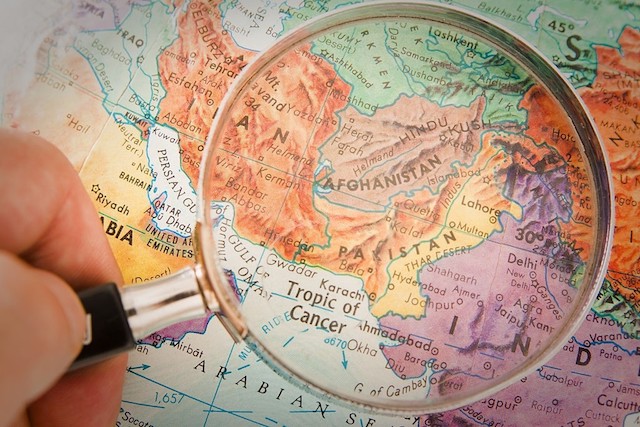Introduction:
The traditional Great Game” term used in literature was a political and diplomatic confrontation that existed for most of the 19th century and beginning of the 20th century between the British and Russian Empires over Afghanistan where the intent was to maintain Afghanistan as a buffer state between the two Empires. The Great Game began on 12 January 1830 when Lord Ellenborough and Lord William Bentinck intended to plan and establish a new trade route to the Emirate of Bukhara in order to gain control over Afghanistan and make it a protectorate, and to use the Ottoman Empire, the Persian Empire, the Khanate of Khiva, and the Emirate of Bukhara as buffer states between both Russian and British Empires.
On the other side, Russian ambitions were always to expand through Afghanistan and further deep in the south to gain access to warm waters hence controlling the sea trade with the Middle East and the rest of the world. The consequent Anglo Afghan wars, Anglo Sikh wars and Anglo Persian wars were basically to gain control over Afghanistan from the British side while the Russian Empire was continuously annexing Central Asian States. The aftermath of the great game ended up with the Russian (USSR) invasion of Afghanistan in 1979 that resulted in a new era of confrontation between Imperial West and the communist USSR.
The New Great Game:
The aftermath of USSR’s withdrawal from Afghanistan in 1988 created a big power vacuum that resulted in a bloody civil war amongst various factions of Afghan resistant groups that practically converted country into a huge rubble. Under such circumstances, the Taliban came into existence and very rapidly captured major parts of Afghanistan and created their own rule that ended around the end of 2001 after the US and NATO invasion of Afghanistan. Since September 2001, a lot of geopolitical and strategic changes have taken place in the region specifically Pakistan and Afghanistan.
Pakistan has had to go through a brutal insurgency and terrorism supported and financed by RAW-NDS nexus from 2007 until recently when Pakistan started building a fence on both Afghan and Iranian borders. Pakistan had to utilize its elite military force and brilliant resources to overcome such terror challenges launched by TTP and other regional non-state actors. In fact, Pakistan was successful in defeating such large terror outfits and came out as a single victorious nation who eliminated these proxies from main Pakistani lands keeping in mind the TTP brand terror groups infiltrating deep inside Pakistan.
On the other hand, Afghanistan’s dynamics were totally different where the Kabul regime had weaker control over majority of Afghanistan thus creating a huge power gap even in the presence of NATO and US forces and their aerial support. This gap was filled by the Taliban understandably with support from all regional powers who were waiting for an opportunity to equalize the 80’s era Soviet humiliation. The recent US-Taliban peace agreement signed in Feb 2020 was the ultimate climax of the 20 years long Afghan war where trillions of dollars were said to be consumed.
Having said all the above, it is believed after reviewing the regional situation and enormous challenges upfront this is the beginning of a new great game in the region. The reason for outlining the regional tussles (India & Pakistan), the US has to find new basis after its withdrawal and geo strategic confrontations (Taliban & Kabul regime) in the context of the new great game, there are some important factors to consider in this regard.

- US interest in maintaining strike capability in Afghanistan: The plan of US and NATO withdrawal has been pretty quick in recent days, the same to be completed by August 31st, US ambitions to maintain strike capability to influence and support the local regime in Kabul is another dynamic factor that could trigger further complications and challenges in the already deteriorating situation of Afghanistan. Keeping in mind that the situation is very much different than 2001 and even the 90’s era when Russia was trying to reassemble itself after collapse of USSR and China was not in the mode to be involved in any conflict for 25 years. Now both China and Russia are equal candidates to get their share of the world’s political arena.
- Containment of China (in the context of emerging superpower): Since China is clearly challenging the US status as the sole superpower, the ultimate attempt from US and allies is to contain the Chinese rise as the new challenger. For this reason, since China has most of its trade via the South China Sea, all strategic games and plans were laid out around that part of the world with help from Australia, Japan, Philippines, South Korea, Taiwan and India. The formation of the military QUAD is prime example in this regard.
- CPEC and Pakistan’s take off: As mentioned above all strategic plans to contain Chinese trade were laid out in the South China Sea, the launching of China Pakistan Economic Corridor (CPEC) is an attempt to extend Chinese access to the Arabian Sea from where China could easily get access to the Middle East, Europe and Africa. In fact, this is the great escape for the Chinese as they will gain multiple objectives via CPEC like developing the western part of China and linking to the Arabian Sea, strategic alignment with Pakistan to contain regional adversaries and finally negating the QUAD plans laid out in and around the South China sea. Pakistan will get enormous benefits after CPEC takes off which is not seen as good in New Delhi.
- Geopolitical & Geo-economic focus (to be shifted from the West to Asia): One of the factors that need to be highlighted is, if China gets the major share of the world’s superpower stature, the global focus will totally shift from the Western world to the Asian Continent. This is the area where Europe and allies invested heavily during the colonial time period and major set ups exist still on those terms. But once the focus converts from West to Asia, the monopoly of the West over many world’s affairs will slip and many changes are expected to emerge for instance in the context of the role of the UN, the World Bank, IMF and Human Rights Establishments, etc.
- Indian ambitions in Central & West Asia: new pattern from Modi’s Hindutva ideology that has emerged is the aggressive pursuance of BJP/RSS agenda that was written in its manifesto for many decades. Previous BJP governments were not able to accomplish this agenda due to many internal factors including secular and powerful moderate voices within India and of course its secular Constitution. It required a fanatic leader like Modi to be in power to fulfill the BJP and RSS agenda. Moreover, the step by step and systematic induction of RSS goons at the government administrative levels including the bureaucracy, police, military and judiciary has provided a boost and confidence amongst the RSS Rank and files that the time has come to pursue the long-awaited agenda. So, the first step taken was to revoke Kashmir Special Status. This unilateral move has huge consequences for the people of Kashmir, Pakistan as a sovereign state and to the Muslims living in India and Bangladesh (so called Akhand Bharat context).

One worrisome fact that needs to be elaborated for the readers is that the emergence of this RSS and Hindutva ideology has expansionist plans westward. The Indian investment in Afghanistan and military base in Tajikistan is a clear example of such ambitions.
We all well know that India is surrounded by oceans from three sides. On the north part are the Himalayas and China where the Indians always see a threat from. Eastern side is Myanmar and ASEAN nations that is not really of interest to India for many reasons. The only way where they would like to expand is the West towards Central Asia and West Asia and here, Pakistan is located like a strong barricade. Just consider for a moment if Pakistan was not located here, the Indian RSS ideology would have spread like a wildfire and would have captured Central Asia, even Iran and the Gulf could be under existential threat.
The historical hatred for Muslim invaders coming from Central Asia, Arabian Gulf and Iran is always in the hearts and minds of RSS extremist leaders. They want to take revenge for the said invasions from Central Asia for a thousand years. We often hear an Indian retired Army General in Indian TV talk shows and telling students that “never forget what the Mughals and other rulers did to our ancestors hundreds of years ago, always keep this in mind always and don’t forget it.” Moreover, former Indian Prime Minister Atal Bihari Bajpai visited Afghanistan during the first decade and wished to visit Ghazni. He mentioned in interview later on that it was his wish to see the city of Ghazni from where Mahmud Ghaznavi was from and how he reached Somnath.
RSS Akhand Bharat ideology is visible to everyone, they openly say that the division of the sub-continent was not right and that one day this division will be eliminated. This means that Pakistan and Bangladesh are still in their minds to become part of a greater Sub-continent under RSS rule. The problem here is that Pakistan, the main roadblock in their way. RSS leaders believe that once Pakistan is dealt with Bangladesh has no power to stand against India and it will be captured within no time. That is why all their negative efforts and evil energies are focused towards Pakistan.

Concluding Remarks:
The New Great Game factors mentioned above are mainly the Russian-Chinese rise to challenge NATO, the initiation of BRI and CPEC being the flagship project in Pakistan via Gwadar and the rise of new geo-political groups in Afghanistan along with diminishing/ evaporating Indian investments in Afghanistan, all these factors are enough to create another new bloody tussle in the region. Pakistan will have to be utmost vigilant on all fronts. The impact of such a new Great Game could be visible very soon in all arenas and throughout the region. The protection of CPEC, sealing of Pak-Afghan borders and Intelligence Based Operations (IBOs) are the main tools to handle the aftermath of such a bloody game. The Pakistani nation must be prepared and be vigilant for the challenging times ahead.






Sir i want annual subscription of Megazine